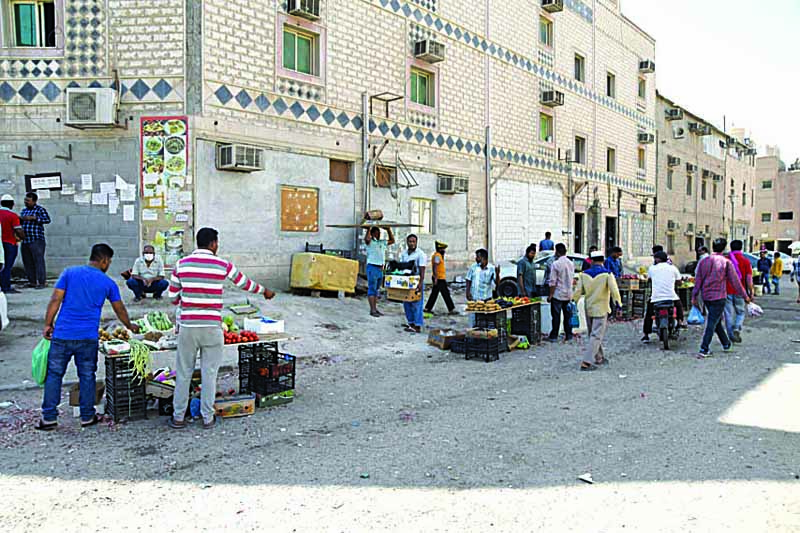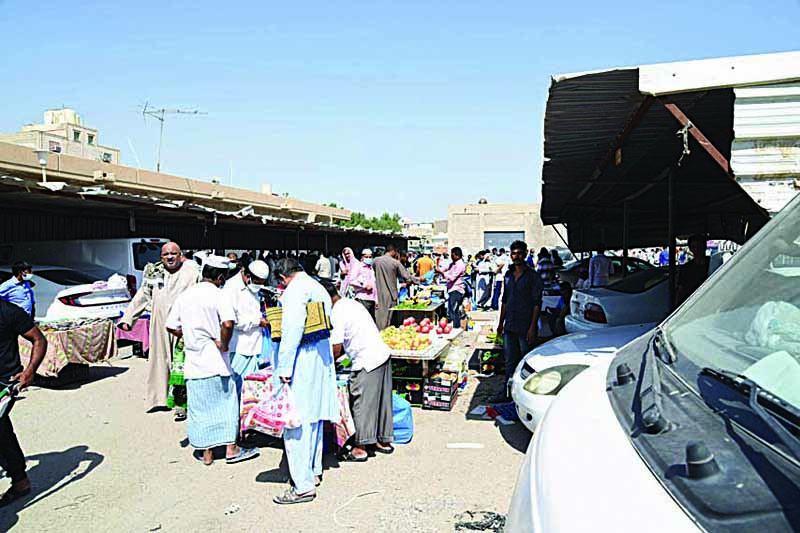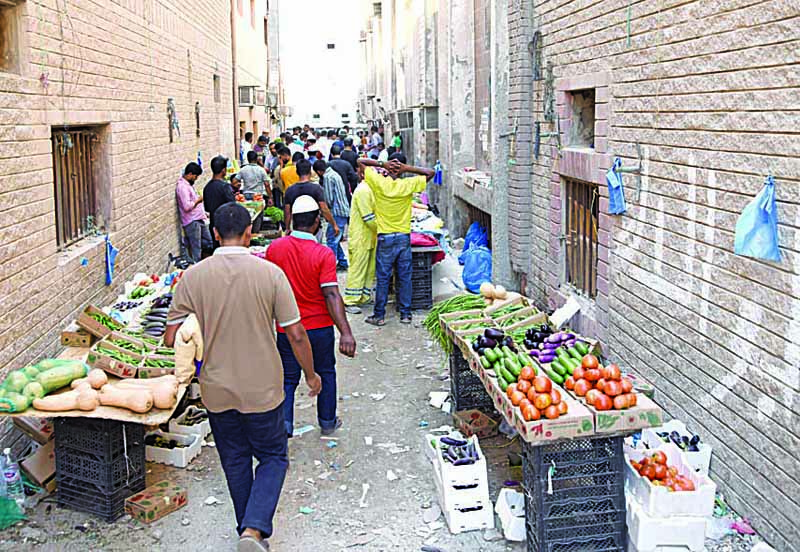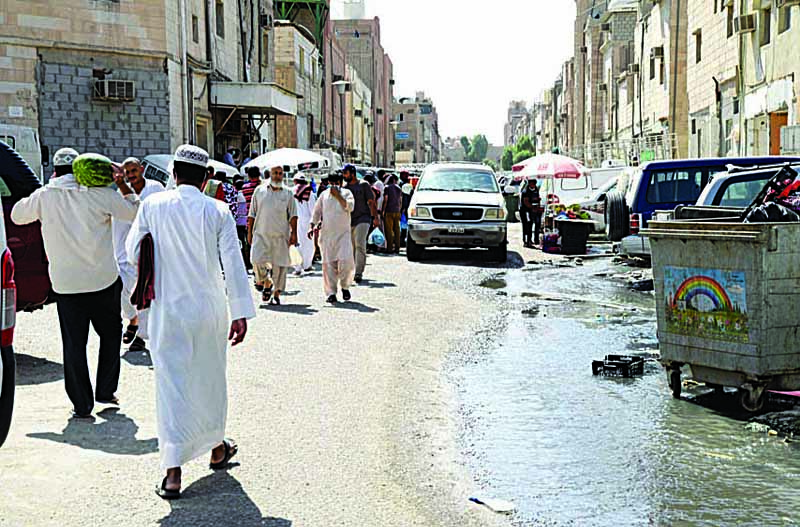
By Ben Garcia
KUWAIT: The struggles of Jleeb Al-Shuyoukh residents have become more pronounced during the pandemic. "I have no job. The place where I previously worked as a cleaner in Kuwait City told me to stop coming to work after the lockdown in April, and haven't called me till now," said 38-year-old Nuzrul (not his real name). He is one of thousands of expatriates who were terminated during the pandemic. Many of them left the country, but others want to try again if given the chance.
"I tried applying for new jobs several times, but since I am now illegal, they do not want to pay the penalties. Besides, I don't know where to find my sponsor. If everything is OK and settled and we are allowed to come again, I will go back to my home country to rest - I am tired," Nuzrul said. He admitted he had bought his visa from a Kuwaiti, but it expired in June. To survive, he buys vegetables from a fellow Bangladeshi supplier at Al-Forda wholesale market and sells them at a makeshift market.
"My supplier delivers vegetables at noon. We sell cheaply because some of the supplies are not fresh and are old stocks. So we get them way cheaper - for instance we sell a box of cucumbers for 250 fils, a box of eggplants for 750 fils and fresh greens are almost free, as I am giving each five bundles for 100 fils, while in the market it's normally 100 fils per bunch. Thank God I am earning something to survive," Nuzrul added.
Nuzrul lives near the makeshift market. "I am now illegal, so I am very cautious regarding the police and checking. I don't take any chances. If I get a new visa, I will buy it again. I will go back to Bangladesh only if I get a new visa," he told Kuwait Times.
Every now and then, police close down the makeshift market, but the vendors keep coming back. "We are illegally occupying the space, but we have no choice," he said. "I have friends here, and several people are monitoring the area. If there is any police presence, we are informed and we run away," he revealed.
Prior to the spread of COVID-19 in Kuwait, Jleeb was a mess, but things are a bit better now. Shops blocking pedestrians were demolished and car parking spaces and sidewalks were widened. Side roads are still rough, but garbage is now regularly collected. But people are struggling to survive. A man was begging for food near a restaurant. "Since the pandemic began, he comes for a piece of bread. We give him food because we know he needs it to survive," a restaurant attendant told Kuwait Times.
Opposite the restaurant, two men were selling old clothes for 100 fils a piece. "These are unsold clothes collected from the Friday Market. He gets them for free because they are littered all over the place after the market closes," said a buyer named Ahmed, referring to the vendor. "He goes to the Friday Market every Saturday evening to collect clothes that are not sold and displays them here by the mosque during his day off," he added.













